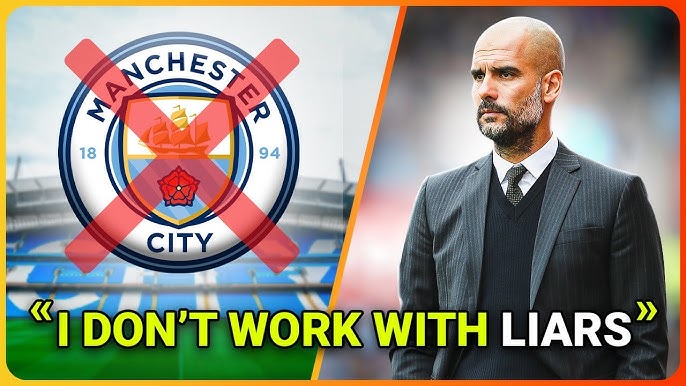Man City FFP: Cityzens would have ‘held their hands up’ if guilty with ‘one’ key detail raised

The ongoing Financial Fair Play (FFP) case involving Manchester City has become one of the most significant and controversial chapters in modern football history. What began as routine regulatory oversight has evolved into a complex legal battle that threatens to reshape the landscape of English football forever. At the heart of this saga lies a fundamental question about the sport’s financial integrity and the lengths to which clubs will go to achieve success.
The Foundation of the Controversy
Manchester City’s transformation from a mid-table English club to a global football powerhouse didn’t happen overnight. The club’s meteoric rise began in earnest following the 2008 takeover by Sheikh Mansour bin Zayed Al Nahyan, a member of Abu Dhabi’s ruling family. This acquisition brought unprecedented financial resources to the Etihad Stadium, enabling City to compete with Europe’s elite clubs for the world’s best players and coaches.
However, this rapid ascension came under scrutiny from football’s governing bodies, who were concerned about the potential for wealthy owners to circumvent established financial regulations. The Premier League’s FFP rules, designed to ensure clubs operate within their means and maintain competitive balance, became the framework through which City’s financial practices would be examined.
The charges against Manchester City stem from alleged violations that occurred between 2009 and 2018, a period that coincided with the club’s most successful era on the pitch. During this timeframe, City won multiple Premier League titles, FA Cups, and League Cups, while also establishing themselves as a consistent Champions League contender. The timing of these alleged violations is particularly significant, as it suggests that the club’s success may have been built on questionable financial foundations.
The Scale of the Allegations
The breadth of the charges against Manchester City is staggering. The club faces accusations of breaching over 100 of the Premier League’s FFP rules, making this one of the most comprehensive regulatory cases in football history. These alleged violations cover a wide range of financial activities, from revenue reporting and sponsorship deals to player transfers and wage structures.
The specific nature of the charges includes allegations that City inflated revenue figures through artificially enhanced sponsorship agreements, particularly those involving companies connected to the club’s ownership group. Prosecutors argue that these arrangements were designed to circumvent FFP regulations by making the club appear more financially viable than it actually was during the crucial early years of the Sheikh Mansour era.
Additionally, the charges encompass claims that City failed to provide accurate financial information to the Premier League, potentially misleading regulators about the true nature of their financial position. This aspect of the case is particularly serious, as it goes beyond simple rule violations to suggest deliberate deception of regulatory authorities.
The Voice of Experience: Paul Dickov’s Perspective
Former Manchester City striker Paul Dickov, who experienced both the club’s pre-takeover struggles and the early stages of its transformation, has offered a unique perspective on the ongoing FFP case. His insights carry particular weight given his intimate knowledge of the club’s culture and the character of its ownership group.
Dickov’s most striking assertion is his belief that the Manchester City ownership would have accepted responsibility if they believed any genuine wrongdoing had occurred. This perspective reflects his confidence in the integrity of the people who have guided the club’s transformation over the past decade and a half.
“The one thing I do know is that the owners are really good people,” Dickov explained in his recent interview. “My own personal opinion is that if they felt there was any wrongdoing on the club’s side from the very start, they would have held their hands up.”
This statement reveals the deep respect that former players have for the Abu Dhabi-based ownership group, but it also highlights the complexity of the situation. Dickov’s faith in the owners’ character suggests that the club genuinely believes in the legitimacy of their financial practices, viewing the charges as unfounded rather than attempting to hide known violations.
The former striker’s observations about the club’s cooperation with the investigation are equally noteworthy. He emphasizes that City has made all requested documentation available to investigators, suggesting a transparent approach to the proceedings. This level of cooperation, according to Dickov, indicates the club’s confidence in their position and their willingness to subject their financial records to scrutiny.
The Legal Process and Its Complications
The Manchester City FFP case represents one of the most complex regulatory proceedings in sports history. The independent commission tasked with reviewing the evidence has spent months examining thousands of documents, financial records, and witness testimonies to determine whether the club violated Premier League rules.
The case was finally heard toward the end of 2024, marking a significant milestone in proceedings that had been ongoing for nearly two years since the initial referral. However, the complexity of the financial arrangements under investigation has meant that reaching a definitive conclusion has proven more challenging than initially anticipated.
Originally, there were expectations that a verdict might be announced by March 2025, but as the months have passed, it has become increasingly clear that the commission requires additional time to thoroughly evaluate all aspects of the case. This delay has created uncertainty for all parties involved, from the club and its supporters to rival teams and the Premier League itself.
The extended timeline reflects the meticulous nature of the investigation and the high stakes involved. Any decision reached by the commission will likely face appeals from the losing party, potentially extending the legal process for many more months. This prospect has led to growing frustration among stakeholders who are eager for resolution and clarity about the club’s future.
Potential Consequences and Their Impact
The potential punishments facing Manchester City if found guilty are severe and could fundamentally alter the club’s trajectory. The range of possible sanctions demonstrates the seriousness with which the Premier League views the alleged violations and the precedent they wish to set for future cases.
A substantial financial penalty would be the most likely outcome if the club is found guilty of lesser violations. Such a fine could run into tens of millions of pounds, representing a significant but manageable consequence for a club with City’s resources. However, financial penalties alone might not be sufficient to address the competitive advantages that the club allegedly gained through their financial practices.
Points deductions represent a more severe punishment that could have immediate competitive consequences. Depending on the scale of any deduction, City could find themselves fighting relegation rather than competing for titles. Such an outcome would be unprecedented for a club of City’s stature and would send shockwaves through the football world.
Transfer restrictions would significantly impact the club’s ability to strengthen their squad and could accelerate the departure of key players whose contracts contain relegation clauses or who simply wish to continue competing at the highest level. This type of punishment would have long-term consequences for the club’s competitive position.
The most extreme potential punishment—expulsion to a lower division—would represent a catastrophic outcome for Manchester City. Such a penalty would effectively reset the club’s progress over the past decade and a half, forcing them to rebuild from a significantly lower starting point.
The Broader Context of Football Finance
The Manchester City case has broader implications for football’s financial ecosystem. The outcome will likely influence how other clubs approach financial regulations and could set important precedents for future enforcement actions.
The case has also highlighted the ongoing tension between traditional football powers and newer entrants backed by sovereign wealth funds or other significant financial resources. This dynamic reflects broader questions about the commercialization of football and the role of external investment in shaping competitive outcomes.
European football has witnessed similar debates, with UEFA’s own FFP regulations facing legal challenges and practical limitations. The City case could influence how these regulations evolve and whether they prove effective in achieving their stated goals of financial sustainability and competitive balance.
The Waiting Game Continues
As the football world continues to wait for resolution, the uncertainty surrounding Manchester City’s case has created a unique atmosphere of suspense. Every week brings new speculation about potential outcomes, leaked information, and expert predictions about the commission’s likely decision.
Paul Dickov’s observations about the weekly speculation cycle reflect the broader frustration felt by all stakeholders. “There isn’t a week goes by when the decision isn’t different – whether they have won or they’ve lost, the Premier League has won or lost,” he noted, highlighting the constant churn of rumors and predictions that have characterized the extended proceedings.
This uncertainty has practical implications for the club’s planning and operations. Transfer decisions, contract negotiations, and strategic planning all occur against the backdrop of potential significant sanctions. Players, staff, and supporters must navigate this environment of uncertainty while attempting to maintain focus on immediate competitive objectives.
Pressure on the Premier League
The extended timeline of the Manchester City case has also placed significant pressure on the Premier League itself. As Dickov observed, there may be more pressure on the league than on the club at this point, particularly given the high-profile nature of the case and the precedent it will set for future enforcement actions.
The Premier League’s credibility as a regulatory body depends partly on its ability to effectively investigate and adjudicate complex financial cases. A weak or inconclusive outcome could undermine confidence in the league’s ability to enforce its own rules, while an overly harsh punishment could face legal challenges and accusations of overreach.
The league must also consider the broader implications of any decision for the competitive balance and commercial appeal of English football. A severe punishment for one of the league’s most successful clubs could have ripple effects throughout the football ecosystem, affecting everything from television revenues to international reputation.
Looking Toward Resolution
As the Manchester City FFP case continues to unfold, all parties are increasingly eager for resolution. The extended timeline has created uncertainty that benefits no one and has potentially damaged the sport’s reputation for effective governance.
Paul Dickov’s perspective as a former City player offers valuable insights into the club’s mindset and approach to the proceedings. His confidence in the ownership’s integrity and the club’s cooperative stance suggests that City genuinely believes in their innocence rather than simply attempting to avoid punishment for known violations.
However, the ultimate resolution of this case will depend on the independent commission’s evaluation of the evidence rather than character assessments or good intentions. The complexity of modern football finance means that violations can occur even when clubs believe they are operating within the rules, making the commission’s task particularly challenging.
The outcome of the Manchester City case will undoubtedly influence the future of football regulation and could reshape how clubs approach financial compliance. Whether it results in vindication for City or significant sanctions, the case has already demonstrated the need for clearer regulations and more effective enforcement mechanisms in professional football.
As the football world continues to wait for answers, one thing remains certain: the resolution of this case will mark a watershed moment in the sport’s ongoing efforts to balance competitive ambition with financial responsibility. The stakes could not be higher, and the implications will be felt far beyond the Etihad Stadium.















